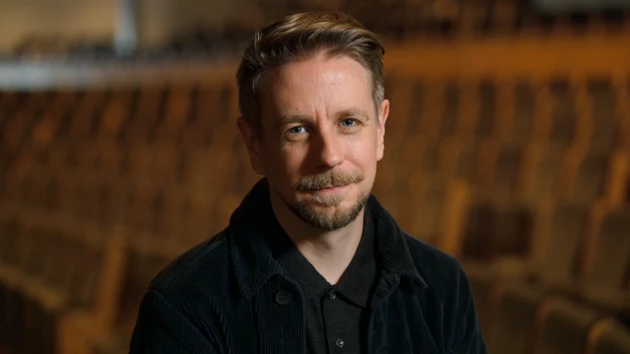Learn more about the programme
Master's Programme in Constitutional Law and Human Rights

Markus Naarttijärvi, professor in the Department of law, is one of the teachers at the master’s programme. He is passionate about the topics of the programme, and really enjoys discussing them in class.
Image: Mattias PetterssonHow would you describe the programme?
In the turbulent times we live in, constitutional law and human rights are increasingly the legal areas where some of the most pressing societal issues are played out. This programme offers students a comprehensive understanding of how constitutional rules and principles, the rule of law, and human rights interconnect and shape the way power is exercised in society, how democracy and human rights are upheld, and the different paths of enforcing and maintaining the rules and principles that protects society from tyranny. The teaching uses examples from jurisdictions around the world to illustrate the diverse ways in which these legal topics can be managed, while placing them in relation to the European setting and the constitutional and human rights frameworks of the Council of Europe, the European Union and national constitutional systems.
Can you tell us a little about the first course on the programme that you coordinate?
The first course on the programme is called Rule of Law, Constitutionalism, and Fundamental Principles. It introduces a number of central concepts for constitutionalism and the rule of law from a more theoretical perspective. It builds upon the knowledge students may already have of their own constitutional frameworks and offers a lens to better understand the choices that have been made in balancing different constitutional values, and how these choices relate to our understanding of the Rule of Law and constitutionalism. We also dive into some current constitutional issues and challenges such as security and emergencies, the impact of emerging technology, and the interaction between different constitutional layers and norms.
Can you tell us about your current research and how it integrates with the course you teach in the master's programme?
My own research revolves around the interaction between security, technology, and the rule of law. I’m particularly interested in how technology mediates policing powers and how that impacts on fundamental rights and constitutional principles such as legality and proportionality. The questions that I pose in my research also tends to ultimately lead back to more fundamental questions about balancing different values in a democratic constitutional system, and how that affects individuals and their relationship to the state. As such, there are direct connections between much of the research I do and the topics of the course, and from the research of the other teachers involved as well.
What is the best thing about teaching on this programme?
Three things, first is the interactions that occur between students coming from different parts of the world and how their experiences from their respective legal contexts contribute to the overall discussions we have in class, it really adds to the collective learning. The second is how inspiring it is to see how students are putting the learning they did during the programme to use after they complete their studies and making a real-world difference in whatever context they end up in. The third part is that I’m very passionate about these topics myself, so getting to discuss these important and interesting issues with our students is really great.